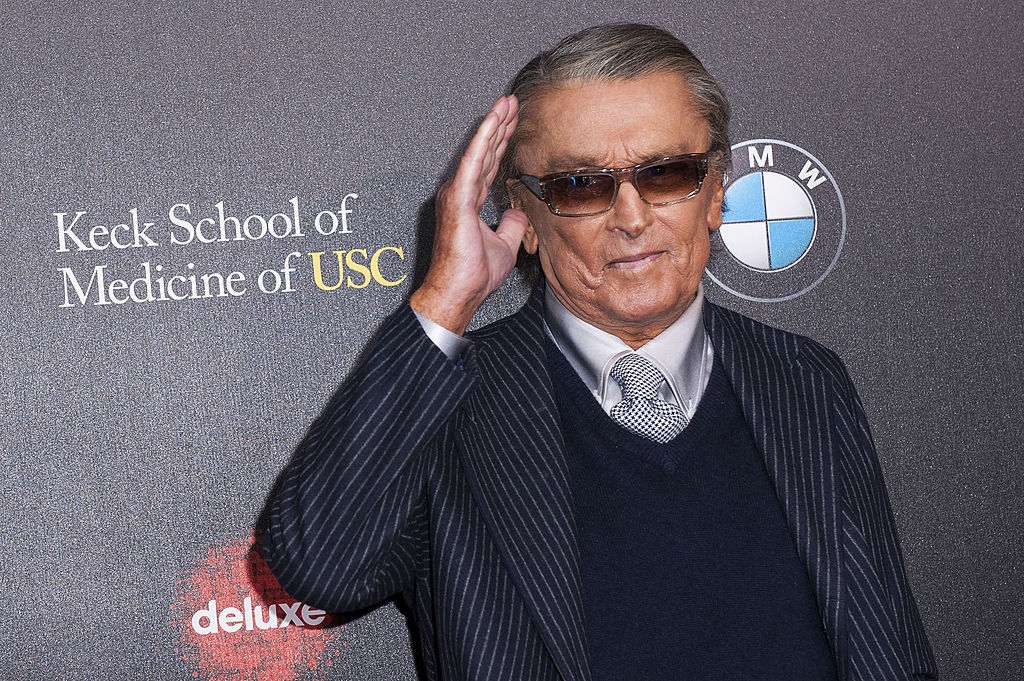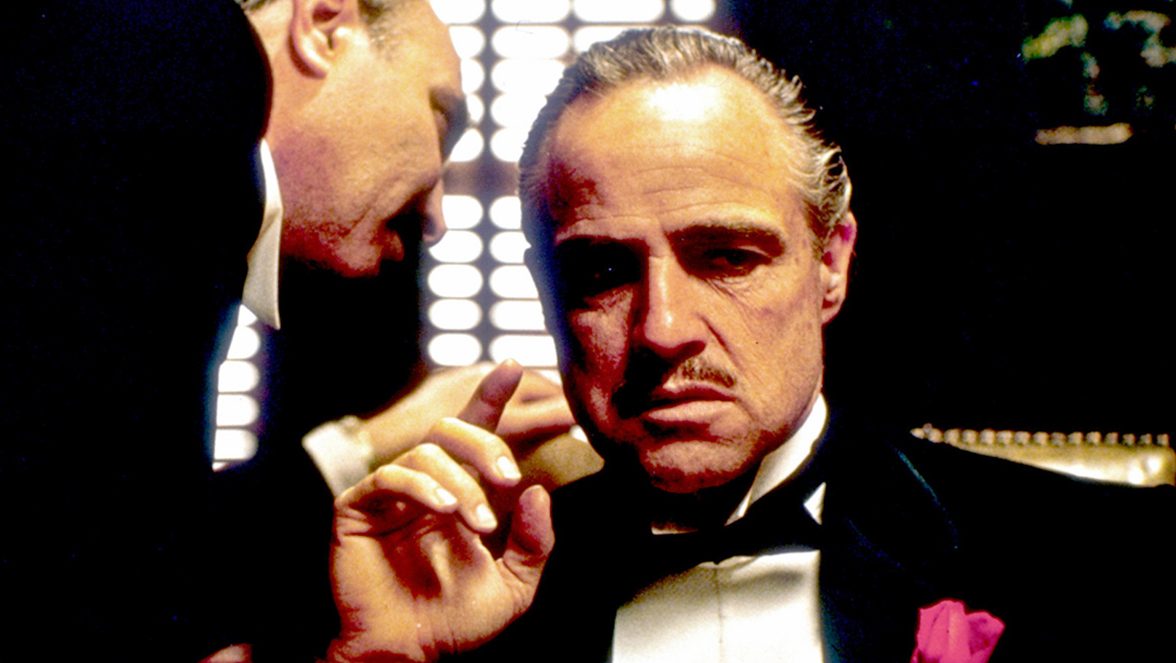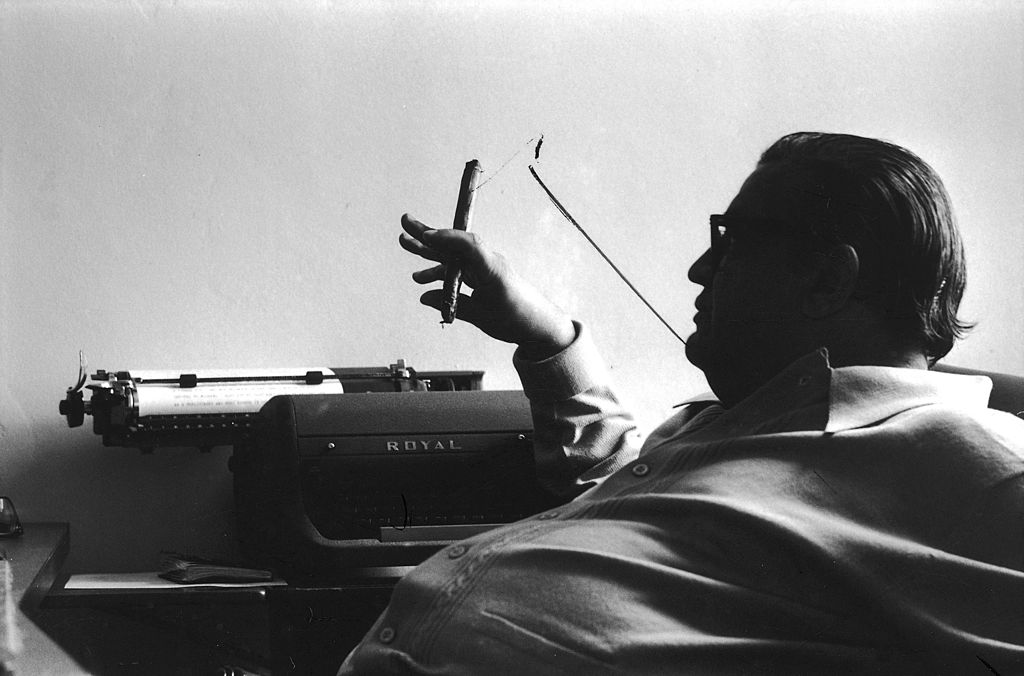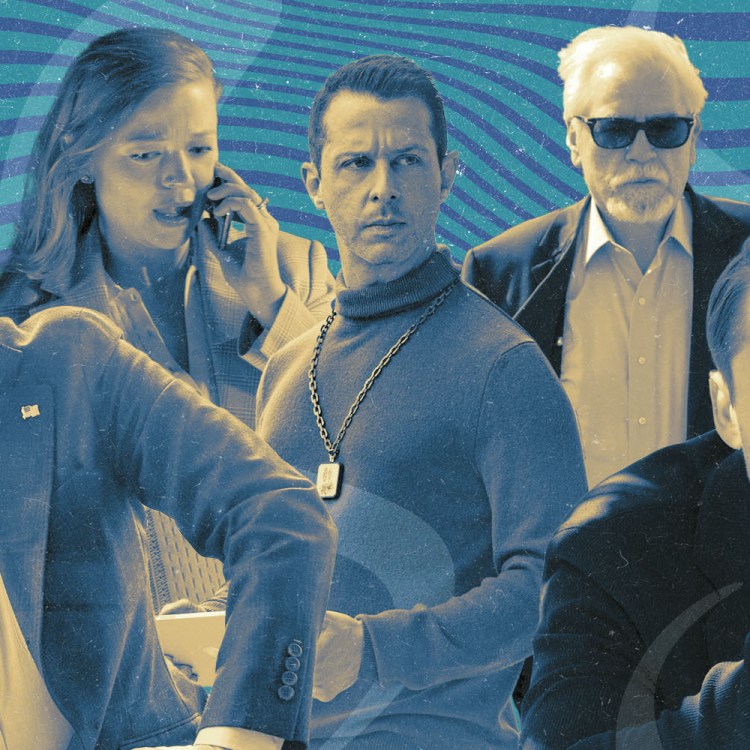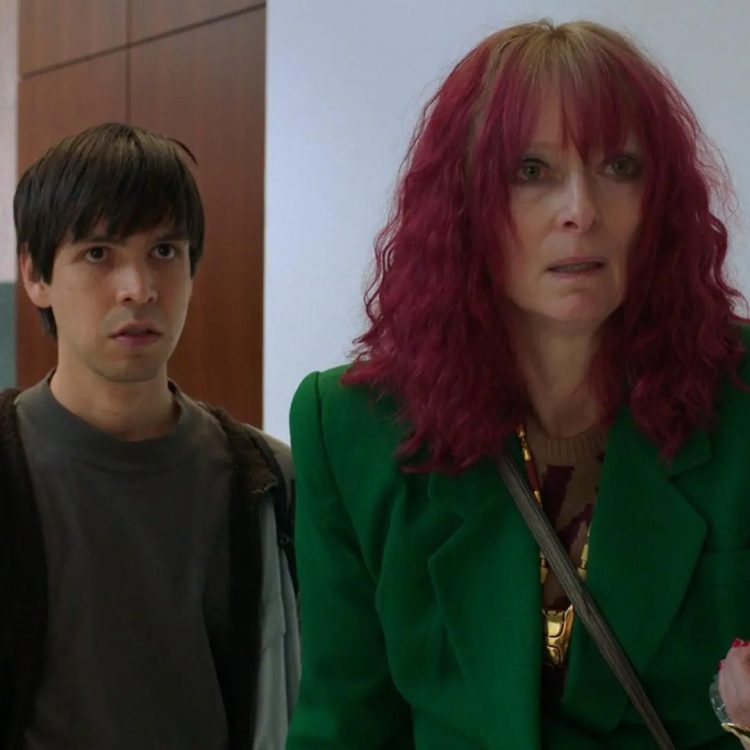As Robert Evans once famously quipped, there are three sides to every story: my side, your side and the truth. Evans memorably told his side of the story with the memoir The Kid Stays In the Picture, which was later adapted into an unforgettable documentary. Others told their side of the Evans story by incorporating his persona into their performances (Dustin Hoffman in Wag the Dog, Martin Landau in Entourage and Bill Hader in Documentary Now!). Now we have what might be “the truth,” with Paramount+’s miniseries The Offer, about the making of The Godfather. Matthew Goode’s scene-stealing performance as Robert Evans, coming nearly 30 years after the publication of The Kid Stays in the Picture, has breathed new life into the Evans legacy.
Once upon a time, the stereotypical studio mogul most resembled people like Louis B. Mayer or Jack Warner, early Hollywood pioneers with reputations for ruling their lots with iron fists, often contemptuous of any movies that were excessively violent or bawdy. But today, Evans has become the personification of what a classic movie studio executive is supposed to look and sound like. He’s smooth and sweet-talking, not tyrannical. He champions the rebellious creativity of filmmakers rather than stifling it. He thrives in the countercultural zeitgeist rather than spurn new ideas. By analyzing a few key scenes in The Offer, we’ll see how Robert Evans has become not just a well-known New Hollywood figure but the new personification of the studio executive.
The first time we see Robert Evans in The Offer, he’s slingshotting his beautiful white convertible through the Paramount Pictures studio gate. He struts across the lot, adorned in a beautiful polyester suit, calling people nicknames like “Trudy Baby” and “Johnny Potatoes” while he casually takes a drag from his cigarette. His sunglasses are enormous. His voice sounds like liquid gold. The camera gazes up at him with the Paramount water tower looming in the background. His boss, the tycoon Charlie Bluhdorn, is worried about money, but Evans’s confidence in his film projects is unshakeable. This is about as stunning an entrance as a character can have, and although it is partly meant to contrast with Miles Teller’s character’s dreary existence at a decidedly unsexy corporation, it also tells us that Robert Evans is not just any studio head, he’s the studio head. This is the coolest man in Hollywood, and he’s the boss of Paramount Pictures in the midst of its heyday, a remarkable era that would produce such iconic films as The Godfather, Rosemary’s Baby, Chinatown, True Grit, Barefoot in the Park, Harold and Maude and The Conversation, to name a few.
This image of Evans was not always how his industry peers saw him. When he was named the head of Paramount in the ’60s, his track record mostly consisted of lousy acting and selling women’s pants. Every industry egghead predicted he wouldn’t last long and that his boss Bluhdorn was a fool for even giving him a chance. Despite his success at Paramount, Evans’ reputation took a nosedive in the ’80s, when he became increasingly associated with box-office bombs, a nasty drug habit and even a murder scandal. His status as a Hollywood has-been continued into the new millennium. Watch, for instance, Martin Landau’s portrayal of a former movie producer obviously inspired by Evans (they even shot in Evans’ real Beverly Hills mansion) in Season 3 of Entourage. Landau’s character is hopelessly out of touch, not just a shadow of his former self but an actual joke of a human being. He tries to regale anyone who will listen with stories of his glory days but nobody takes him seriously.
When the documentary film adaption of The Kid Stays in the Picture premiered in 2002, it was the first time in decades that someone else, namely a pair of documentary filmmakers, celebrated Evans’ colorful personality and remarkable filmography. The film’s then-innovative technique of bringing archival photographs to life using multilayered composites, coupled with Evans’ signature voiceover, allowed movie fans to experience Evans in his prime. It brought back to life his charisma and dynamism. Twenty years later, The Offer has similarly brought ’70s Evans back to life for the streaming era. But this time it’s not just a grizzled veteran waxing nostalgic about his glory days, it’s a man at the height of his talents.
Of course, as talented as he might’ve been, Evans would not be the quintessential Hollywood producer if he wasn’t also glamorous as hell. In The Offer, we see him seated at a corner table surrounded by three attractive young women, before an evil bean counter (played by Colin Hanks) arrives to berate him for not making enough blockbusters. In another scene, Evans finishes a work call while poolside with his third wife Ali MacGraw (he would have four more wives after her). He then invites her to have sex in his pool. Of course, she dives in. Throughout the series, we see Evans perpetually tan, adorned in Yves Saint Laurent shirts, flashy ascots and magnificent eyewear. Unlike the moguls of old, he embodies tinseltown flash, often sparkling brighter than the beautiful actresses always surrounding him.
One of Evans’ best scenes in The Offer comes in the third episode when he describes the moment from his childhood when he realized he wanted to be involved in filmmaking. He calls the movie theater his temple and declares himself a high priest of the religion of cinema. It’s a relatively insignificant moment in the context of the making of The Godfather (Evans is just motivating his colleague to watch some dailies), but it conveys his talent for pitching ideas, for bombast, for somehow making everyone in the room love that he’s bullshitting them. In another scene, he walks into a drab conference room filled with executives, and, with the future of Paramount at stake, proceeds to dazzle everyone in attendance. This is what it takes to get an ambitious film like The Godfather made. Evans isn’t actually sure that the film will be a hit, but he makes everyone around him believe it will be. He bridges the gap between the creatives and the financiers, translating Francis Ford Coppola’s thirst for artistic greatness into the language of dollars and cents.
Perhaps when Evans described himself as a priest of cinema, he was being too modest. He may be more like a Hollywood god, at least according to the “truth” of The Offer. Once the butt of many jokes, Robert Evans, a mogul who cared about creativity, now seems like a dream in an era of endless IPs and sequels and franchises. While studio heads today always seem obsessed with playing it safe, Evans flouted every convention he could find. Of course, this portrayal of Evans may be more fantasy than reality. Certainly The Offer is just as much about myth-making as it is about taking us behind the curtain. But then again, it would be poetic if Evans the person had become swallowed up by Evans the Hollywood legend. It’s what he would’ve wanted, and it’s the story we all want to hear.
This article was featured in the InsideHook newsletter. Sign up now.

